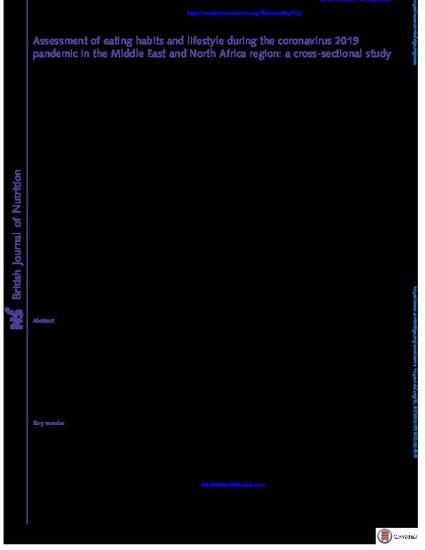
© The Authors 2020. The coronavirus disease (COVID-19) has rapidly spread globally, forcing countries to apply lockdowns and strict social distancing measures. The aim of this study was to assess eating habits and lifestyle behaviors among residents of the Middle East and North Africa (MENA) region during the lockdown. A cross-sectional study among adult residents of the MENA region was conducted using an online questionnaire designed on Google Forms during April 2020. A total of 2970 participants from 18 countries participated in the current study. During the pandemic, over 30% reported weight gain, 6.2% consumed five or more meals per day compared to 2.2% before the pandemic (p<0.001), and 48.8% did not consume fruits on daily basis. Moreover, 39.1% did not engage in physical activity, over 35% spent more than five hours per day on screens. A significant association between the frequency of training during the pandemic and the reported change in weight was found (p < 0.001). A significantly higher percentage of participants reported physical and emotional exhaustion, irritability, and tension either all the time or a large part of the time during the pandemic (p < 0.001). Although a high percentage of participants reported sleeping more hours per night during the pandemic, 63% had sleep disturbances. The study highlights that the lockdown due to the COVID-19 pandemic caused a variety of lifestyle changes, physical inactivity, and psychological problems among adults in the MENA region.
- COVID-19,
- Dietary Patterns,
- Eating habits,
- Keywords:,
- Lifestyle behaviors,
- MENA region
Available at: http://works.bepress.com/haleama-alsabbah/10/
